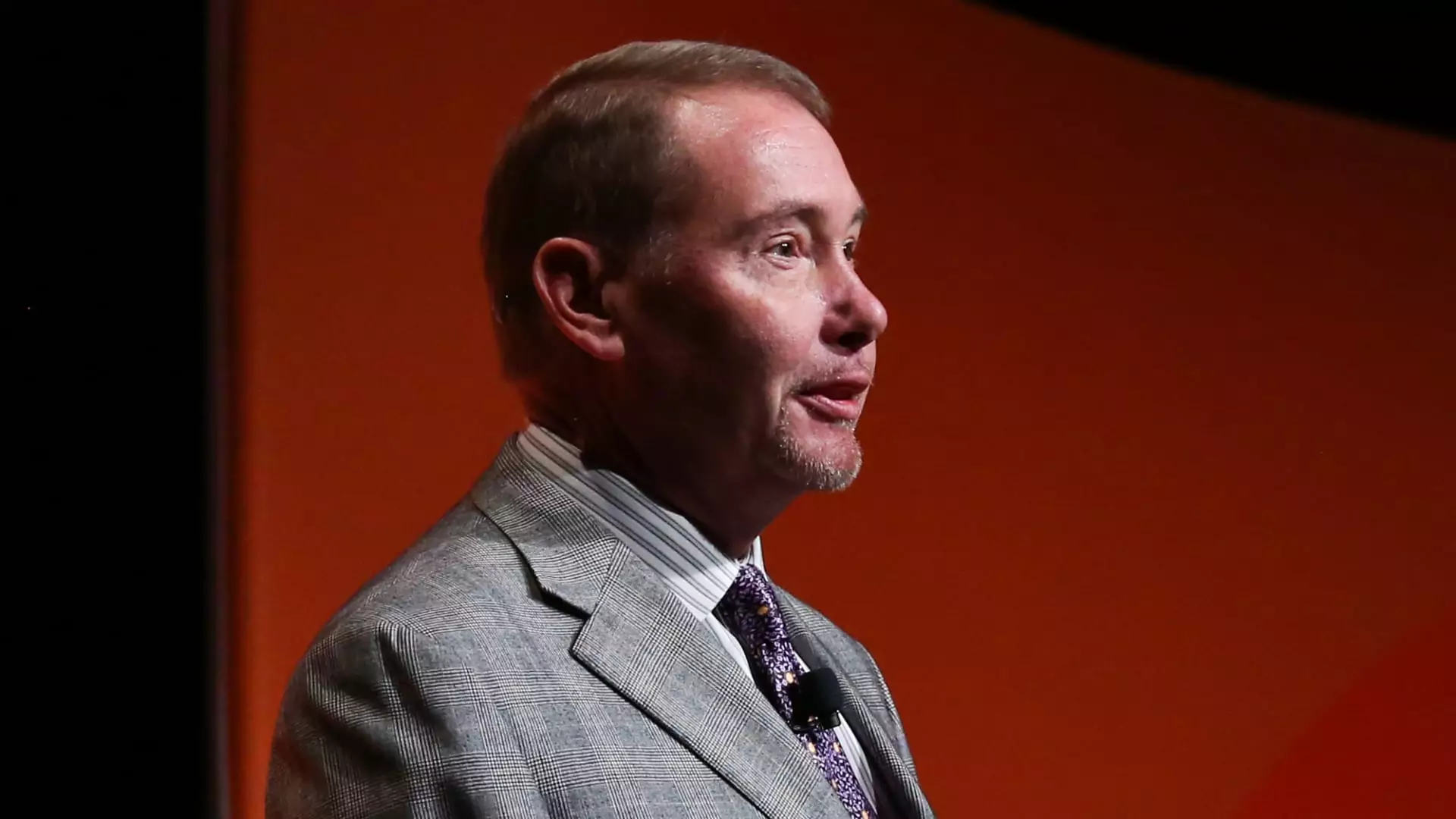In a world fixated on the immediate gains of a roaring stock market, Jeffrey Gundlach, the CEO of DoubleLine Capital, has offered a grave reminder of the vulnerabilities lurking beneath the surface. A self-proclaimed authority on fixed income investments, Gundlach recently articulated that the risk of recession is not only present—it is imminent. As he shared during his appearance on CNBC’s “Closing Bell,” Gundlach’s warnings carry weight, particularly as they arise amidst signs of volatility spurred by governmental trade tactics and aggressive tariffs.
Understanding Market Volatility
For those who may still believe the markets to be an unassailable fortress of financial security, Gundlach’s insights punctuate that facade. The S&P 500, for instance, is languishing approximately 8% below its historical highs, following a swift correction triggered by unsettling trade policies. What’s alarming is that Gundlach’s call for a more cautious investment approach is bolstered by an assessment of broader economic dynamics, including the Federal Reserve’s recent adjustments to its growth and inflation forecasts. As this volatility escalates, it emphasizes an uncomfortable reality: the time to adjust our portfolios may have already passed, and failure to heed the expert’s advice could leave investors exposed to financial ruin.
The Burden of High Borrowing
Gundlach’s assertion that DoubleLine has reduced its leveraged positions to the lowest levels ever witnessed in the company’s history cannot be overlooked. It starkly highlights the fragility of confidence in the current economic climate. With concerns over inflation intensifying alongside the specter of a recession, a significant shift in investment strategies is warranted. For many investors, clinging to borrowed funds as a method of amplifying returns could prove disastrous in a looming downturn. By minimizing this leverage, Gundlach urges caution and a reevaluation of risk tolerance—a sentiment that resonates deeply as the streets of finance threaten to become increasingly treacherous.
Looking Beyond Borders
Gundlach’s prophetic guidance does not merely end at raising red flags about U.S. securities; he boldly advocates diversifying investments toward European and emerging markets. His suggestion to pivot away from American assets speaks volumes about his confidence in international opportunities that might offer refuge from the impending storm. This geographical reallocation not only reflects a pragmatic approach to investing but also an indictment of an insular mindset that has historically characterized U.S. investor behavior.
A Call for Proactive Adaptation
In light of Gundlach’s predictions, it is crucial for investors to understand one vital truth: awareness of risk must yield proactive adaptation. Ignoring these warnings could lead down a path of financial despair—a reality Gundlach starkly captures with his assessments. As we navigate these turbulent waters, embracing a forward-thinking investment strategy may be the only safeguard against the potentially harsh economic repercussions ahead.
In a time when optimism can often cloud judgment, it is essential to acknowledge the weight of such advisories. Therefore, as Gundlach foresees a 50% to 60% chance of recession within the next year, one must question not only the validity of our current investments but also whether we are prepared to weather the storm. Ignorance in this regard could be financially fatal, making vigilance more critical than ever.

